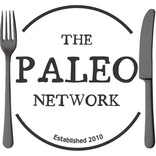Date
Saturday, 15 Oct 2016 10:00 PM
https://www.bastyr.edu/civicrm/event/info?reset=1&id=2035
Using simple terms, the course will introduce diverse and practical ways to classify and recognize plants. Classifications like evergreens versus deciduous plants; annuals versus perennials, ecological and size classifications (trees shrubs, herbs, and ephemerals) provide information about plant habits, lifestyle, longevity, hints for growing or finding them. They are alternatives to the l Linnean system of naming plants with binomials (genus and species), an identification based on external features (flower morphology, leaf shape and size) and implying knowledge of the plant family. In addition to species name, identification implies information about plant habits, relatives, longevity, occurrence and constituents. Although short, the course introduces > 20 of the most important plant families with natives to the Pacific Northwest. The second day consists of easy plant walks to the St. Edward’s woods in which you will use the gained knowledge to identify wild and some domesticated plants (Bastyr Herb Garden).
At the end of this course students will:
Get to know a variety of examples for evergreens, annuals and perennials of the PNW
Train ability to follow simple procedures that let you identify a plant genus and species by starting with the subkingdom, class, family, genus and species
Obtain ability to recognize plants from 20 of the most important plant families in the PNW
Understand that plant identification imparts and organizes knowledge about plant relations, typical anatomical features, typical constituents and longevity.
Learn how to preserve plants for future identification or reference (optional)
Realize that we do not name plants for vanity or sport but as a first step to building a deeper understanding Course notes:
We recommend students who have an illustrated book about the wild life flora of the Pacific Northwest (recommended is Pojar and McKinnon “Plants of the Pacific Northwesrt Coast” and R Taylor “Northwest Weeds”) to bring it. Some books will be provided. You should also bring a hand lens, a simple folder or plant press to collect plant samples for later identification or preservation).
Wear / Bring shoes and wear appropriate for walking in the woods.
1hr lunch break – Bring a sack lunch or eat in Bastyr’s dining commons
Location: Bastyr University Kenmore Campus, room #134. Bastyr University is housed in an older facility with fluctuating interior temperatures; it is advisable to wear layers. Also, Bastyr is a “fragrance-free” campus.
Please Bring: Personal water bottle (filtered water dispensers available on campus to refill).
Instructor: Rainer Stahlberg, PhD
Rainer Stahlberg, PhD is an adjunct faculty professor in the Department for Botanical Medicine, Bastyr University and Research associate in Bioengineering University of Washington
Rainer was a plant researcher before he obtained his PhD in plant biology working on electrical signals in plants. He taught botany in Germany (Humboldt University Berlin), Russia (st. Petersburg), and the United States (University of Washington and Bastyr University). He also taught Botany with the legendary Arthur Kruckeberg to public audiences enrolling for weekend classes with the North Cascade Institute. This great man introduced Rainer to the plants of the Pacific Northwest from 1998 to 2006. He also imparted his philosophy that science does not exist in a Ivory tower or university and that it is the duty of any of its participants to report back to and serve the public. Rainer has taught botany to kids, adult students and the general public. He has developed a hands-on approach that can be understood by anybody anywhere. His course website can be found at http://staff.washington.edu/raista/. Rainer enjoys questions and speaks with people in the perfume industry to students in Namibia. He is also active as a researcher at the UW Bioengineering department, where he works on the relation of water structure and plants.
Course Fee
General Public $99.00
Alumni $75.00
Students $49.00

